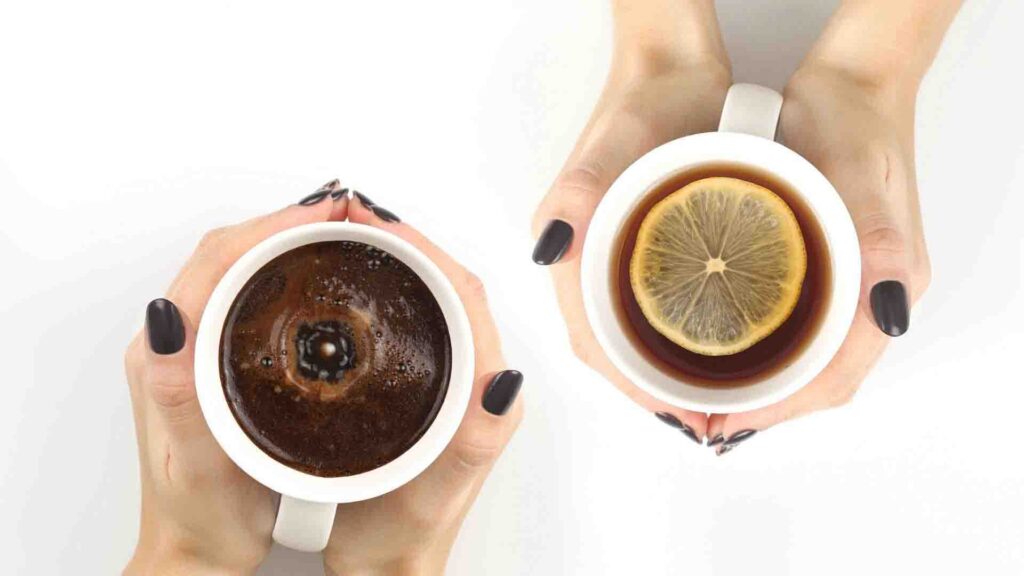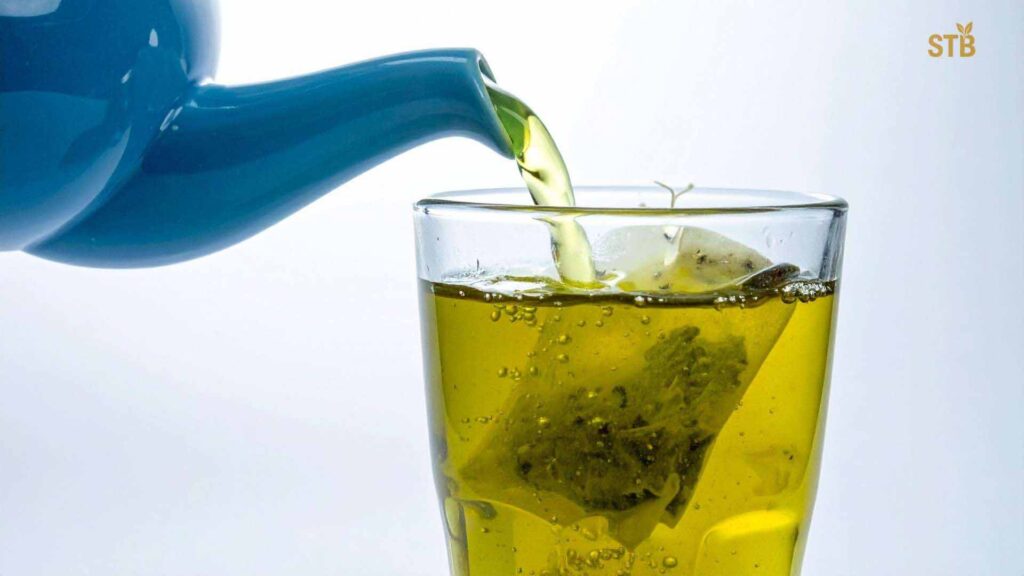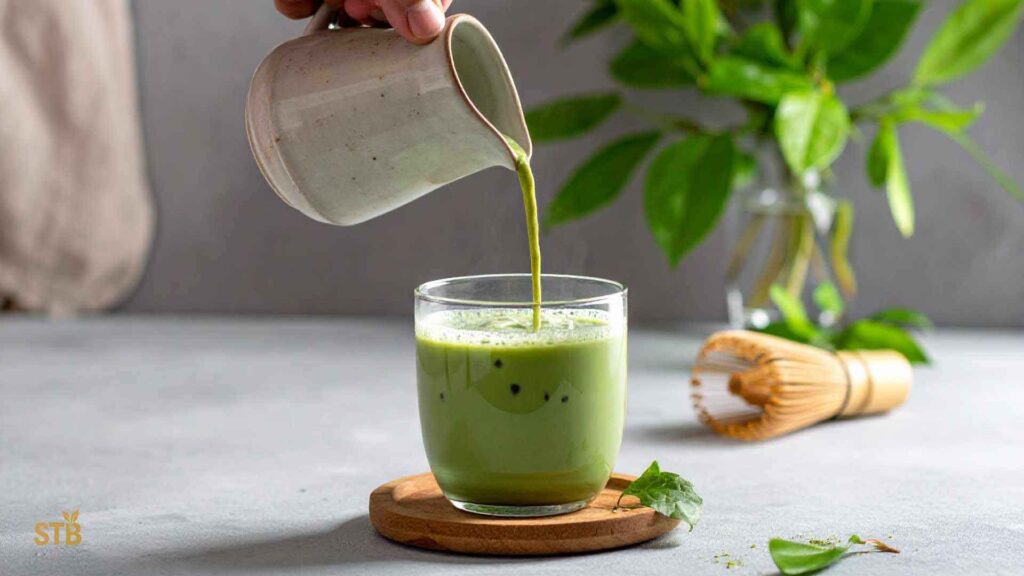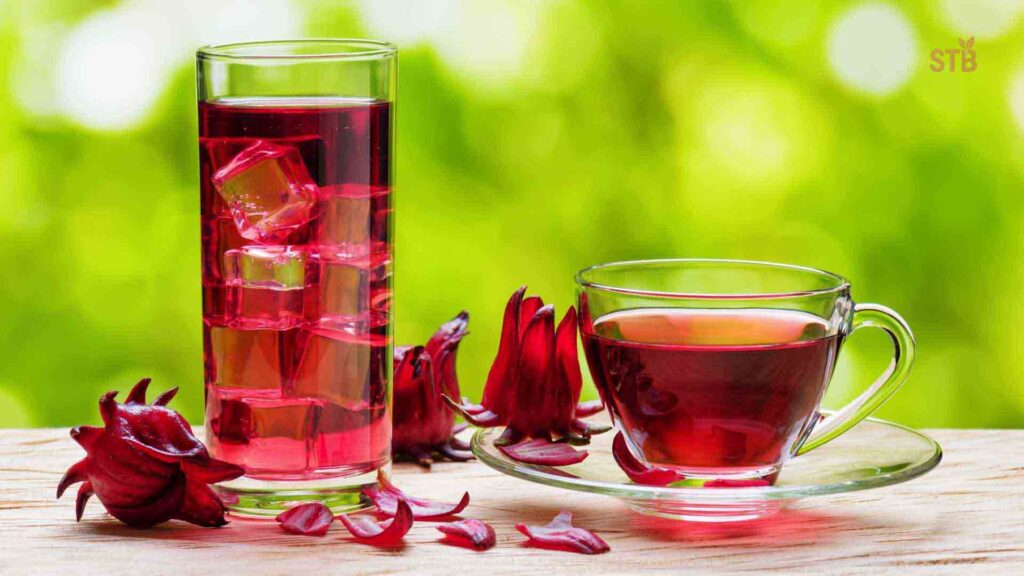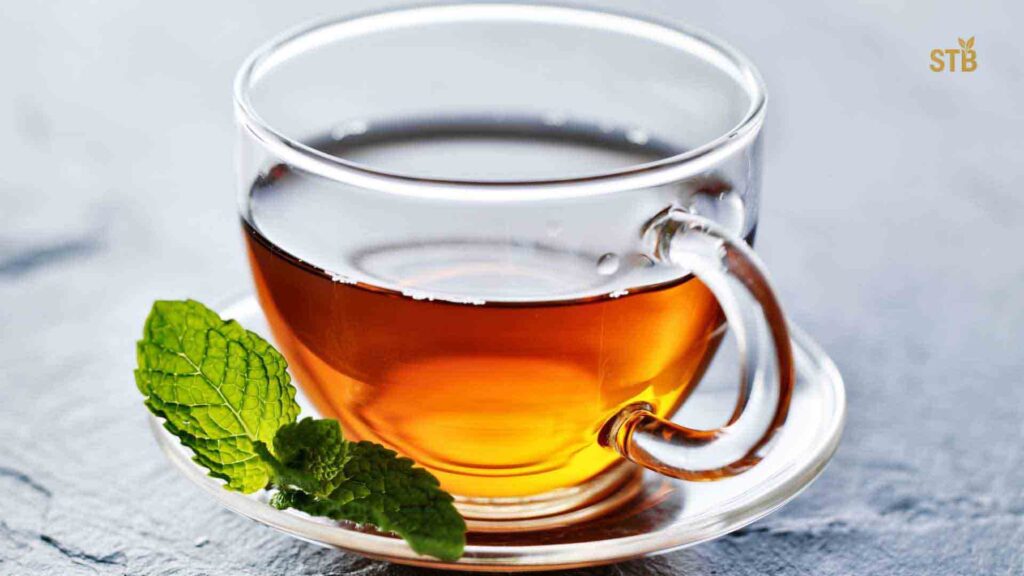Tea and coffee are the world’s two most popular beverages, but health-conscious drinkers often wonder: which is better for wellness? In Bangladesh, a nation rich in tea culture and heritage, tea has long been celebrated for its soothing qualities. Recent scientific studies also highlight how tea’s nutrients and compounds can support overall health. In this comprehensive guide, we dive deep into tea vs coffee, examining caffeine content, antioxidants, unique compounds like L-theanine, and how each drink affects the body. By the end, you’ll understand why many experts consider tea to be the healthier choice.
Caffeine and Antioxidants: The Key Nutritional Face-off
Both tea and coffee contain caffeine, which boosts energy and alertness. An 8-ounce cup of brewed coffee has about 80–100 mg of caffeine, whereas the same serving of black tea has roughly 40–50 mg. This means coffee delivers about twice as much caffeine per cup. Health authorities say up to 400 mg of caffeine per day is generally safe for most adults, but lower amounts (around 300 mg) may be ideal for avoiding side effects like jitters or sleep disturbance.
Because tea is lower in caffeine, it often provides a gentler wake-up call. Many people find that black or green tea’s caffeine boost wakes them up with calm focus rather than the quick “jolt” and potential crash sometimes felt with coffee.
Besides caffeine, both drinks are loaded with antioxidants (polyphenols) that protect cells. Coffee is rich in chlorogenic acid and flavonoids, while tea (especially green and black) is rich in catechins, theaflavins, and thearubigins. Studies show that green and black teas have very high polyphenol content – nearly as much as coffee – helping reduce inflammation and oxidative stress.
In fact, Healthline notes that “both tea and coffee are loaded with antioxidants” which may help protect against chronic diseases like heart disease and certain cancers. In short, neither drink has a monopoly on antioxidants – but tea’s unique mix provides broad coverage of health benefits.
L-Theanine and Focus: Why Tea Calms While Coffee Stimulates
A major difference is that tea contains L-theanine, an amino acid not found in coffee. L-theanine is celebrated for promoting relaxation without drowsiness. Research (and experts like the Cleveland Clinic) explain that L-theanine increases brain chemicals (GABA, dopamine, serotonin) that enhance calm and focus.
For example, a 2019 study found L-theanine helped healthy adults stay more relaxed and mentally sharp when combined with caffeine. As a result, tea drinkers often experience a “calm alertness” – improved concentration without the jitters. Coffee, by contrast, can make sensitive people feel anxious or overstimulated.
If you’re prone to anxiety or insomnia, tea’s caffeine + L-theanine combo typically leads to smoother energy and better mental balance than coffee alone.
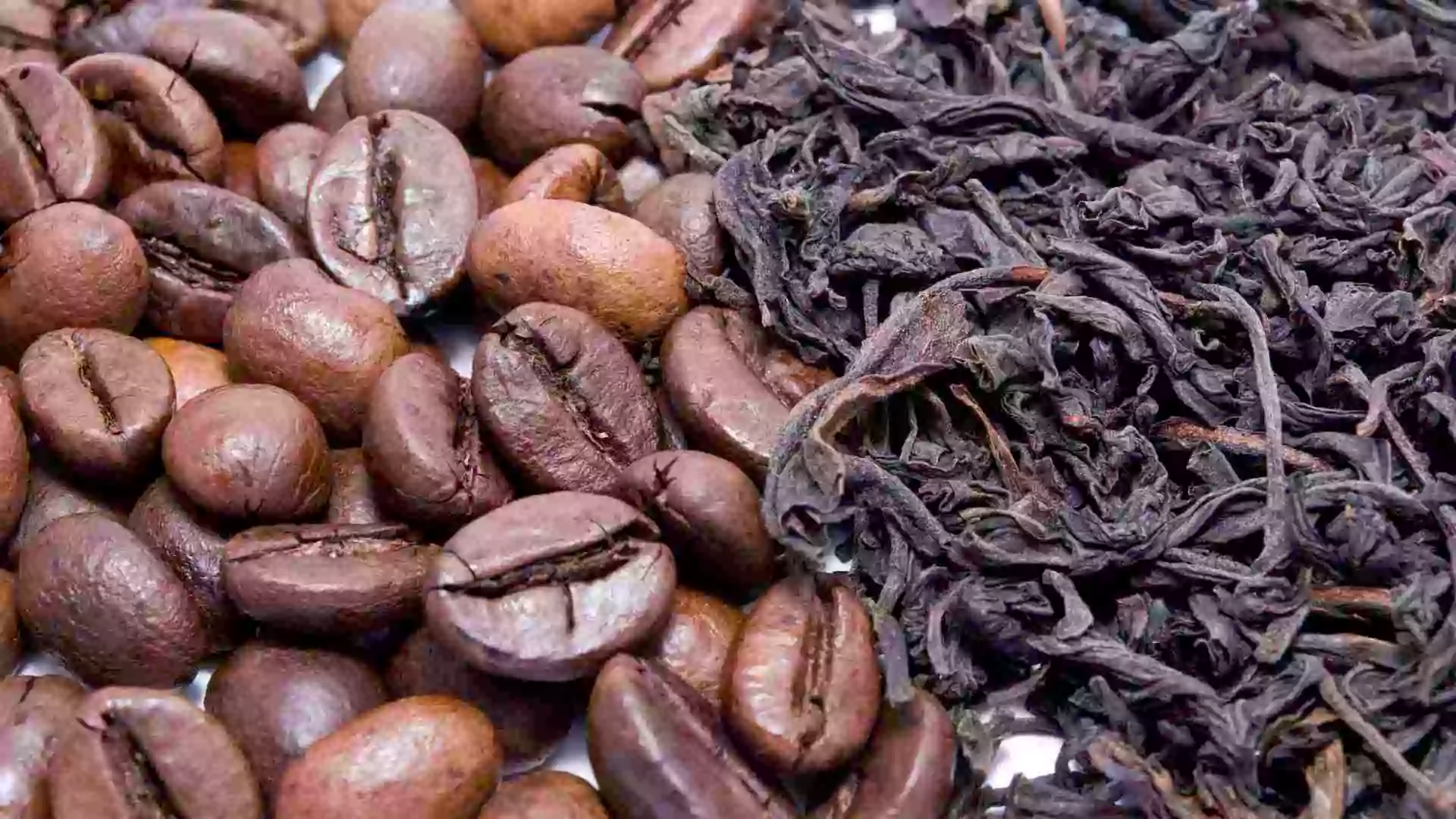
Health Benefits of Tea vs Coffee
Tea offers many proven wellness perks. Here are some of the key reasons health experts often recommend tea (especially green and black) over coffee:
- Heart Health and Cholesterol: Tea’s flavonoids (like theaflavins in black tea and catechins in green tea) help relax blood vessels and lower LDL (bad) cholesterol. Studies link regular tea drinking to reduced risk of heart disease and stroke. (Black tea compounds, for instance, have been shown to reduce artery plaque in lab studies.) In comparison, coffee also benefits the heart, but its higher caffeine content can raise blood pressure in sensitive individuals.
- Blood Sugar and Diabetes: Both coffee and tea may aid glucose metabolism, but green tea has an edge in diabetes prevention. Drinking several cups of green tea daily has been associated with improved insulin sensitivity. A large observational study (Sept 2024) found that consuming any caffeinated tea or coffee (200–300 mg caffeine per day) was linked to a lower risk of type 2 diabetes, coronary artery disease, and stroke. In practice, people can enjoy their favorite caffeinated tea blend knowing it supports metabolic health.
- Weight Management: The modest caffeine in tea (plus compounds like EGCG in green tea or theaflavins in black tea) can slightly increase metabolism. Animal studies suggest tea polyphenols may inhibit fat absorption and alter gut microbiota to prevent weight gain. Coffee’s higher caffeine content also boosts calorie burn, but tea offers a lower-caffeine alternative for steady, sustainable metabolism support. In summary, both beverages can aid weight control, but tea does so with less risk of overconsumption.
- Hydration and Digestion: Tea hydrates nearly as well as water, and many herbal teas (caffeine-free) soothe digestion. For example, peppermint tea can alleviate indigestion, and ginger tea helps with nausea. These effects promote general wellness without depending on caffeine. (Coffee is mildly diuretic and can relax the stomach’s lower valve, sometimes worsening acid reflux in sensitive people)
- Dental and Oral Health: Some teas, especially green and black teas, contain fluoride, tannins, and catechins that help fight oral bacteria and cavities. Rinsing the mouth with tea or sipping it warm may strengthen enamel over time. Coffee, on the other hand, is acidic and can stain teeth, offering fewer dental benefits.
- Brain Health and Mood: Regular tea drinkers often report better mood stability. In addition to L-theanine’s calming effect, tea’s antioxidants protect brain cells. Studies link long-term tea drinking to slower cognitive decline and lower risk of Alzheimer’s. Coffee also has neurological benefits (it’s linked to lower Parkinson’s risk), but tea’s gentler caffeine helps preserve sleep and avoid the “crash” that can sometimes follow coffee. In fact, due to caffeine’s effect on the brain, very high coffee intake can lead to dependence or sleep disruption, issues rarely seen with moderate tea consumption.
Taken together, these points make a compelling case that tea often edges out coffee for overall wellness. Tea delivers many similar or unique health benefits without as many downsides. Its antioxidants rival coffee’s, its caffeine is milder, and its special compounds like L-theanine add calming support.
This does not mean coffee is “bad” – Harvard Health notes coffee drinkers enjoy many benefits like reduced heart disease and diabetes risk – but for a soothing, health-boosting daily drink, tea tends to be the safer choice.
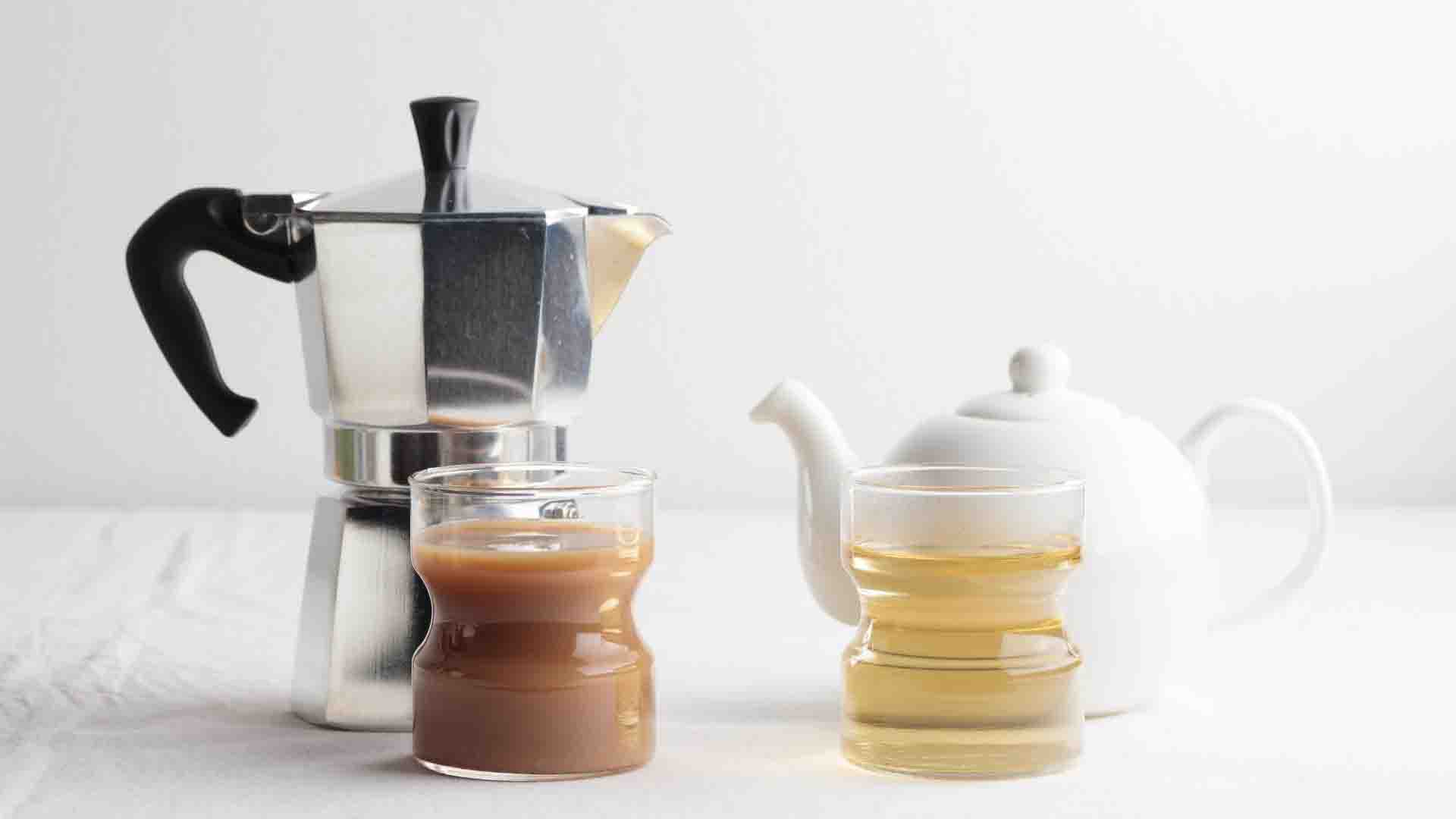
Making Tea Part of Your Wellness Routine
Adopting tea for daily wellness is easy. Replace one cup of coffee with your favorite tea each day. Start with black or oolong in the morning if you still want some caffeine kick, then switch to green tea or herbal infusions (chamomile, peppermint, ginger) in the afternoon or evening. Herbal teas are naturally caffeine-free and can target specific needs: chamomile or lavender for relaxation and better sleep, peppermint or ginger for digestion, hibiscus for heart health, and so on.
To brew the perfect cup, use fresh water and the right temperature for each tea type (e.g. around 80°C for green tea, boiling for black tea). Our STB Leaf blog has an excellent guide on brewing tea to maximize flavor and benefits (How to Brew the Perfect Cup of Tea). You can also read more about different teas and their health perks in our article Different Types of Tea and Their Health Benefits. With premium loose-leaf teas and simple brewing, tea becomes a nourishing daily ritual for body and mind.
Tea and Wellness: A Holistic Approach
“Tea time” can be a mindful wellness break. Sipping tea encourages you to slow down, hydrate, and enjoy a moment of calm – all supportive of well-being. Unlike a busy morning coffee run, preparing tea often feels like a gentle self-care ritual. Plus, tea has fewer calories on its own (no sugar or cream needed) and tends to be sipped more slowly than coffee.
These lifestyle factors – hydration, mindful breathing, and avoiding heavy stimulants – further tilt the balance in favor of tea for long-term health. From a wellness perspective, tea fits easily into a balanced lifestyle. It complements exercise and healthy eating by providing natural anti-inflammatories and antioxidants.
And if you ever need a non-caffeinated break, herbal teas (like rooibos or tulsi) offer soothing warmth without any stimulant. In short, tea’s role in wellness is multi-faceted: it hydrates, soothes, energizes mildly, and brings antioxidants and calming compounds together in one cup.
Embrace Tea for Health
Ready to experience the tea advantage firsthand? Explore STB Leaf’s selection of premium teas sourced from Bangladesh’s finest gardens. Whether you choose bold black teas or delicate green blends, you’ll be sipping your way to better wellness. Shop our premium teas today and start enjoying that perfect cup. As you make tea a healthy habit, you’ll feel the benefits – on your body and on your mindset – with every sip.

FAQs
Q: Is tea really healthier than coffee?
A: Both tea and coffee offer health benefits thanks to antioxidants and nutrients. However, tea often wins out for health-conscious drinkers because it typically has lower caffeine (which means less risk of jitters or insomnia) and contains L-theanine for calm focus. Experts note that tea’s compounds (like catechins and theaflavins) protect against chronic diseases, while its gentler caffeine profile makes it easier on the heart and nervous system. In moderation, both can be enjoyed, but tea may be the safer daily choice for overall wellness.
Q: How much caffeine is in tea vs coffee?
A: A standard 8-ounce (240 ml) cup of brewed coffee has about 80–100 mg of caffeine, whereas the same amount of black tea has about 40–50 mg. Green tea contains even less (around 25–40 mg), and white tea has slightly less than black tea. Herbal teas (like chamomile or mint) usually have no caffeine. Overall, tea provides a milder caffeine boost.
Q: Can drinking tea help with weight loss more than coffee?
A: Both tea and coffee can slightly boost metabolism because of caffeine and plant compounds. Coffee’s higher caffeine helps burn more calories immediately, but tea’s polyphenols (like green tea catechins) may also aid fat oxidation. Clinical evidence is mixed, but tea drinkers often replace high-calorie sodas or sugary drinks with low-calorie tea, making weight management easier. In practice, the healthiest strategy is to drink either beverage without added sugar – tea has the edge here because it’s often consumed plain.
Q: Does tea have antioxidants like coffee does?
A: Yes. Tea and coffee are both rich in antioxidants. Coffee is high in chlorogenic acid, while tea has its own antioxidants (catechins, theaflavins, etc.). A Harvard review notes green and black teas have polyphenol levels nearly on par with coffee. These antioxidants from tea help reduce inflammation, support heart health, and may lower cancer risk. Drinking any of them provides antioxidant benefits, so choosing tea still gives you plenty of protective compounds.
Q: Can tea reduce the risk of chronic diseases?
A: Research suggests regular tea drinking is linked to lower rates of several chronic conditions. For example, tea’s antioxidants may protect against heart disease and stroke by improving blood vessel function. Some studies also show a reduced risk of type 2 diabetes in habitual tea drinkers. In one large study, people consuming 200–300 mg of caffeine from any source (tea or coffee) daily had a lower risk of diabetes, heart disease, and stroke. Tea’s unique compounds (like EGCG in green tea) may also help prevent cancer and support immune health. While more research is always needed, tea certainly contributes to a healthy lifestyle that wards off illness.
Q: Will tea keep me awake at night like coffee can?
A: It depends on the type. Black and green teas do contain caffeine, so drinking them late in the day might affect sleep if you’re very sensitive. However, their caffeine levels are lower than coffee’s, and the L-theanine in tea tends to promote relaxation. Many people find they can enjoy a cup of green tea or even decaf black tea in the early evening without trouble. If sleep is a concern, you can switch to naturally caffeine-free herbal teas (chamomile, mint, rooibos) after dinner for a soothing bedtime drink.
Q: What is L-theanine and how does it affect me?
A: L-theanine is an amino acid found in tea leaves (especially green and black tea). It has calming properties and works synergistically with caffeine. L-theanine can increase GABA, dopamine, and serotonin in the brain, which promotes relaxation and reduces anxiety. In practical terms, consuming tea with L-theanine means you get a gentle energy lift and a feeling of calm focus – unlike coffee, which lacks this compound and can sometimes make people feel jittery.
Q: Are herbal teas (tisanes) good for health?
A: Absolutely. Herbal teas (like chamomile, ginger, peppermint, hibiscus, and more) aren’t true “teas” but are still wellness-rich. They usually have no caffeine and can target specific needs. For instance, chamomile tea is famed for improving sleep and relaxation. Peppermint can aid digestion, while hibiscus is linked to lower blood pressure and a strong vitamin C boost. Adding herbal infusions into your routine is a great way to diversify health benefits without caffeine.
Q: Does tea dehydrate you more than water?
A: No. While caffeine has mild diuretic effects at very high doses, studies show that moderate coffee or tea consumption hydrates just as well as water in a normal diet. In other words, drinking tea still contributes to your daily fluid intake. In fact, because tea is hydrating and often consumed plain (no sugar), it’s an excellent way to stay hydrated compared to sweetened coffee drinks or sodas.
Q: Should I switch entirely from coffee to tea?
A: It’s not mandatory, but many health experts encourage incorporating more tea for variety and moderation. Both drinks can be part of a healthy diet. You might try replacing one coffee with a cup of tea per day – for example, have green tea in the afternoon instead of a late coffee. Listen to your body: if coffee makes you feel anxious or disrupts sleep, substituting with tea is a wise choice. Over time, you may find you enjoy tea’s flavors and gentle energy boost so much that coffee naturally takes a back seat.
Sources: Authoritative health and nutrition publications were referenced for this article, including Harvard Health and Healthline. For more on brewing and tea varieties, see our STB Leaf blog posts.

